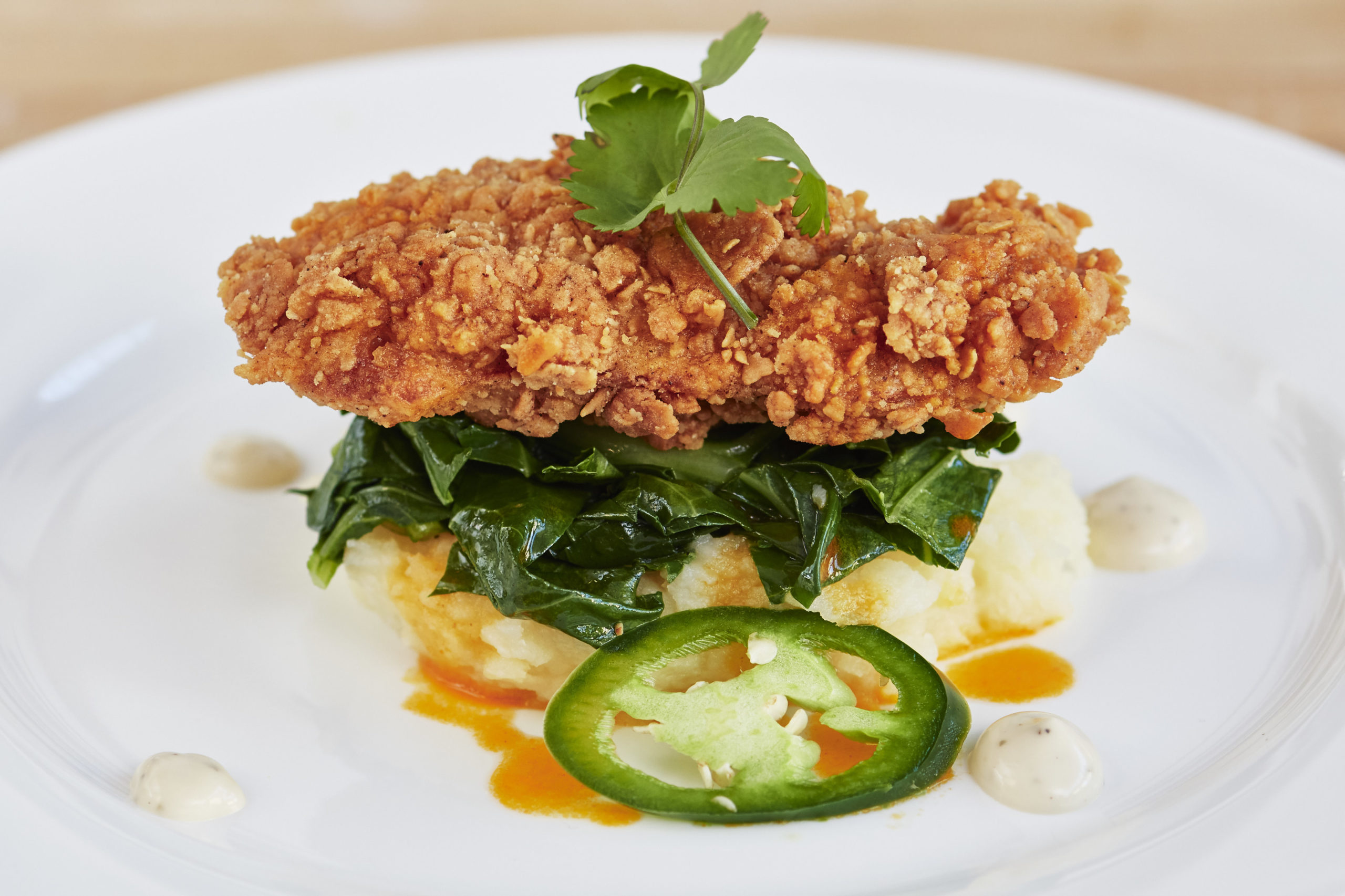A San Francisco startup plated some fairly familiar dishes at a tasting yesterday, like fried chicken with collared greens and duck l’orange. But these meats didn’t come from gutted bird corpses. They were all lab-grown, and our lab-grown meat experts are bummed we were not invited to taste, too. Not that we would have been able to go or anything, we’re very busy. But come on, guys!
Image; Memphis Meats
Others have attempted to serve up these non-slaughter meats, and have already created cultured burgers. But poultry is a whole ‘nother ball game, and the startup, Memphis Meats, claims to be the first to hit this high-flying (or flightless) milestone.
Apparently, it tasted very good.
“The duck l’orange was tender and juicy and loaded with savoury flavours,” Emily Byrd, a spokesperson for the Good Food Institute, a nonprofit that looks to advance the field of slaughter-less meat, told Gizmodo. “They really nailed the texture and mouthfeel. It’s funny to talk about, because it’s a hundred per cent real meat, so it tasted like what it was, meat.”
These high-tech meat makers like Memphis Meats strive to create all of the flavour and nutrition of meat without the killing. As we’ve previously reported, other cultured meats begin with stem cells and nutrients, grown in thin layers to keep them oxygenated. Then the gross part — some products needed to be bathed in fetal bovine serum, essence of unborn baby cow blood, which helps the meat to grow larger. These meats were made with a process that eliminated the serums, and removing fetal bovine serum is one of Memphis Meats’ priorities. “We’re actively reducing it from every step of our production process.” Eric Schulze, Senior Scientist at Memphis Meats, told Gizmodo.

Image: Memphis Meats
But fetal bovine serum is not that gross, seeing as the alternative is killing animals who often live in pretty rough conditions in an industry that contributes greenhouse gases to the environment. Chicken already takes up a $US90 billion ($117 billion) share of the annual American meat market, and may soon become the world’s most-consumed meat. That’s a whole lot of slaughtering, and these lab grown meat companies hope to offer a more humane option.
“People have to eat meat despite how it’s produced,” said Byrd. “Once there’s this alternative that’s safer and doesn’t harm animals and is better for the environment, there’s no reason people won’t flock to it.”
There’s definitely some competition in this space. Another lab-grown meat Company, SuperMeat had set out to create lab grown chicken as well but hasn’t done it yet, said Byrd. Memphis Meats debuted its lab grown meatball back in 2016, and folks have made lab-grown burgers in the past, the first of which apparently didn’t taste very good. Memphis Meats wouldn’t say whether they could one day make weird meats like giraffe, but we get it, it’s probably better to start with a chicken tender first.
Regular ol’ animal meat companies like Tyson Foods and Hormel also seem to have noticed the lab-grown meat movement. Tyson might offer venture capital to these kinds of projects and Hormel thought it was a good “long term” idea, according to a story published in the Wall Street Journal.
Memphis Meats was able to serve chicken to the two dozen or so attendees to yesterday’s event, and will continue scaling up its product. The Wall Street Journal cites a “1 pound [453g] of chicken meat for less than $9,000 [$AU11,896]” cost estimate, but that cost is dropping rapidly with each new batch, Steve Myrick, the company’s vice president of business development, told Gizmodo. He hopes that by the time the slaughter-free meats hit stores by 2021, the cost matches that of regular meat.
“Any consumer that wants to consume [our] meat for ethical or financial reasons should be able to do so and have that choice on the market,” said Schulze.
Hopefully we get to try it before then.
[Good Food Institute via the Wall Street Journal]
